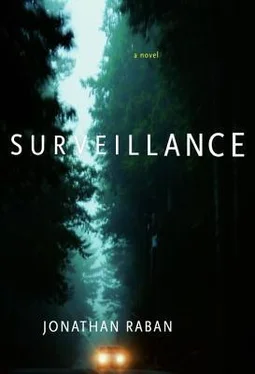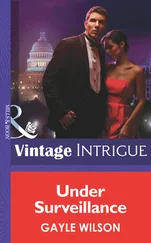“Oh, I haven’t started writing yet,” Lucy said. “It’s odd — I find writing profiles harder and harder as I get older. It’s that conclusive tone they tend to have, as if the journalist has gotten to the bottom of the subject’s soul in a one-hour interview, and the piece is like the last word.”
“Woe to those who conclude!” Augie said.
“Montaigne?”
“Close, but no cigar. You got the language right, at least. Flaubert.”
“I thought you had no time for fiction.”
“It’s his letters that I like. They’re great. I’ve done little more than flip through Madame Bovary. ”
“I prefer nonfiction too.” Alida was practically licking the last of the mousse from her plate.
“Like your mom said, you might try my book. It’s about a kid a good bit younger than you are now.”
“Okay, cool. And it’s your true story?”
“Sure, it’s everything I remember from being three to around nine.”
“Did you meet Adolf Hitler?” Evidently Alida believed that a person who got phone calls from Steven Spielberg must habitually have moved in high circles.
“Not personally, no. But I was in Germany when he was in charge.”
“Cool!”
“No, it was just about as uncool as you could imagine. Read the book, you’ll see.”
As Lucy and Minna were loading the dishwasher, Minna said, “You know, I haven’t seen Augie as happy as this in years. You’re such fun to have around, you and Alida. For me, too.”
Lucy felt like Judas.
ALIDA USUALLY slept in on Saturdays, but this morning she’d set the alarm for six-fifteen to catch the tide. Muffled in two heavy sweaters and her yellow anorak, she had to breathe in deeply to fasten the clips on her life vest. Augie, too, looked like the Pillsbury Doughboy.
They set off in a dank, gray, windless chill, the sound of each paddle stroke uncannily amplified by the dawn silence. In the days following her last outing, Alida seemed to have unconsciously absorbed the new skill; she paddled, as Augie said admiringly, “like a pro.”
They went farther out this time, letting the houses that rimmed the bay shrink behind them. Alida told Augie about Peter Puget and navigation by sextant.
“Yeah,” he said. “George Vancouver was a stiff, uptight guy. You wouldn’t want to get on his bad side, which was about the only side he ever showed. But Puget was quite different — a real people person. He got fascinated by the Indians, bartered with them, tried to learn their language and understand their customs, all that. He’d be a good guy to share a yarn with. I sometimes wonder what he’d say if he could see Puget Sound today. Okay, so obviously his eyes’d be bugging out on strings, but would he feel proud, or sad, or what, do you think?”
“I dunno. A little sad, I guess. Like we drove the Indians out and gave them bad diseases and stuff. Look! Dogfish!”
“Right. Just very, very junior members of the shark family. There’s nothing — nothing at all — to be frightened of.”
But she felt no fear. There were at least a dozen circling right beneath the kayaks in a fishy spiral. The light was insufficient to give them any color; they were dark shadows, each three or four feet long, up to their own business in a submarine world that wasn’t hers. She found herself watching them with detached wonder — just as a scientist might, she thought.
“See how they chase one another’s tails? Dogfish have the IQ of a medium-sized pumpkin.”
As the spiral moved, they quietly shifted their kayaks on the water to keep them in view. At some invisible signal, the shadows suddenly scattered and were gone.
“Wow!” Alida said.
“I love to watch critters in the wild — they keep one in mind of one’s own critterliness. IQ or no IQ, we’re not so different from the dogfish, really. Time to go back, or we’ll have to drag the kayaks way too far up the beach.”
LUCY WOKE violently from a bad dream. She’d stepped from the elevator to hear an explosion of noise from her apartment. When she walked in, she found it had been taken over by a weird crew of bums who were playing deafening rock music on boom boxes and snorting lines of devil’s dandruff from dollar bills. They’d torn down her pictures and covered the walls with lewd graffiti. When she told them to go, they laughed and sneered. She went to the phone to call 911, but the line was dead; they’d cut it off. A grinning bum with missing front teeth shook a broken bottle in her face. She screamed and came awake in the scented bedroom of the Vanagses’ house, fearing she’d woken her hosts. Or was it just a dream scream that hadn’t found an actual voice?
The dream seemed to her at once infuriatingly familiar and totally obscure. Then she remembered it was exactly the scenario promised by the landlord when he’d first talked about changing her lock. Now Charles O. Lee, comical and horrible in equal parts, had wormed his way into her dream life — an intolerable violation, fuck him. She the one! Absurd, of course, but when she recalled the landlord’s phrase, she felt like the victim of an attempted murder. She the one! No wonder he was visiting her in nightmares.
She quickly fell asleep again, and reawoke just past nine. Given Augie’s rigorous schedule, surely he ought to be practicing his Schubert now, but the house was quiet: no typewriter keys, no fumbled chords from the piano. In pajamas and bathrobe, she went barefoot downstairs to get coffee and bring it up to her room, but there Augie was on his piano stool, nodding his head as he listened to an iPod. Alida ’ s? She never lent her iPod to anybody except Gail.
“Hi!” He removed the earphones. “Alida’s out on the beach — I seem to go through a lotta sand dollars in the course of my research. I’ve been listening to her favorite band.”
“Oh, right, Green Day.”
“No, not Green Day, Fall Out Boy.”
Lucy had never heard of them. “Yes, of course. Green Day was like last month’s craze. So yesterday now. What d’you make of Fall Out Boy?”
“They’re…cool, I suppose.”
“If you say so.”
“We were out in the kayaks and saw a pack of dogfish. Not a peep of fright from Alida. She enjoyed watching them.”
“She’s at that age when they change so fast from week to week that you can’t begin to keep up with them.”
“She was paddling like a pro today. We had a fine time on the water.”
Lucy’s inner eleven-year-old stirred in her once again. Why did he never ask her to go kayaking? Well, he was smart enough to know she really didn’t want to — that was why.
Augie turned to assassinating Schubert, so Lucy, coffee in hand, went up to get dressed. She was sitting by the window scribbling Augieisms in her notebook when Alida came into the room, holding a book.
“Look what Augie gave me.”
It was a hardback copy — first edition, she saw — of Boy 381. A collector’s item, for it had gone through umpteen printings.
“See what he wrote in it for me?”
On the title page, he’d inscribed: “To my cool friend, Alida Bengstrom, with admiration, from your uncool friend, Augie Vanags.” Then “Useless Bay” and the date.
“Rabbit, you’re going to have to take extra special care of this. It’s valuable.”
“Valuable?”
“It’ll be worth several hundred dollars, at least. Especially after the movie comes out. We’d better buy a paperback for you to actually read. You should keep this in a safe place in your room.”
“I’m going to read it now.” Her tone of voice refused contradiction.
“What about homework?”
“We don’t have much this weekend, just some math. And I really, really want to read Augie’s book.”
Читать дальше












